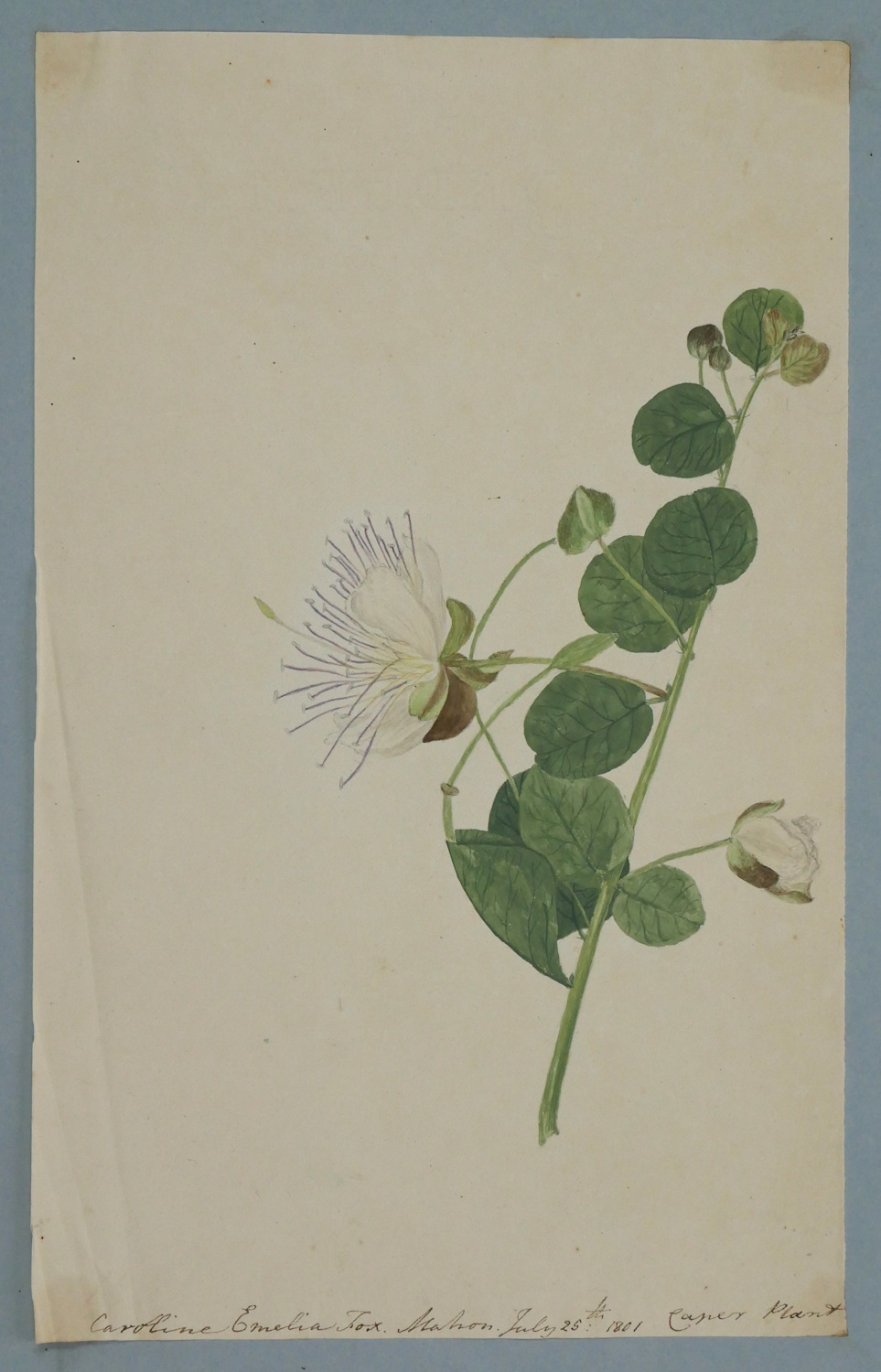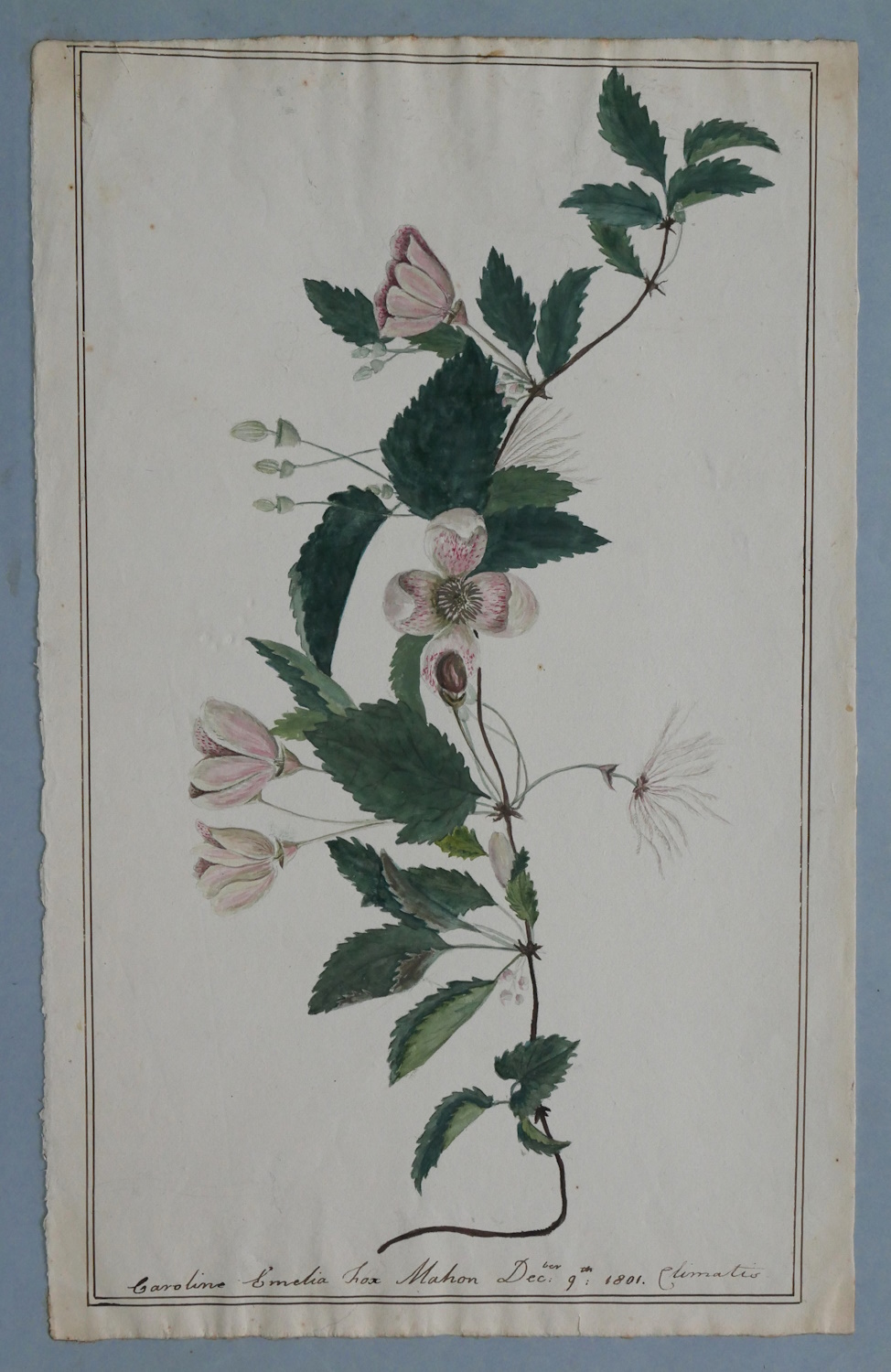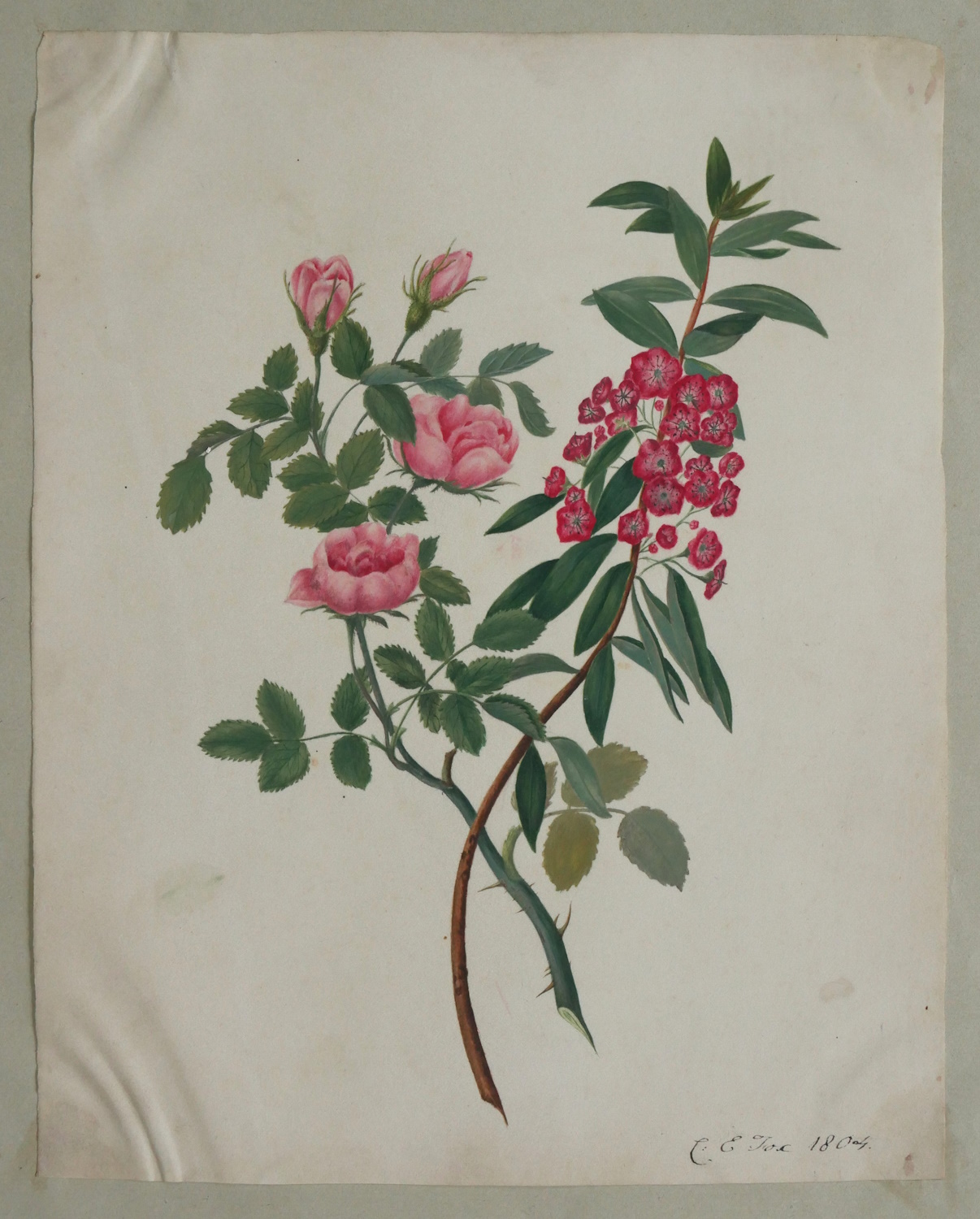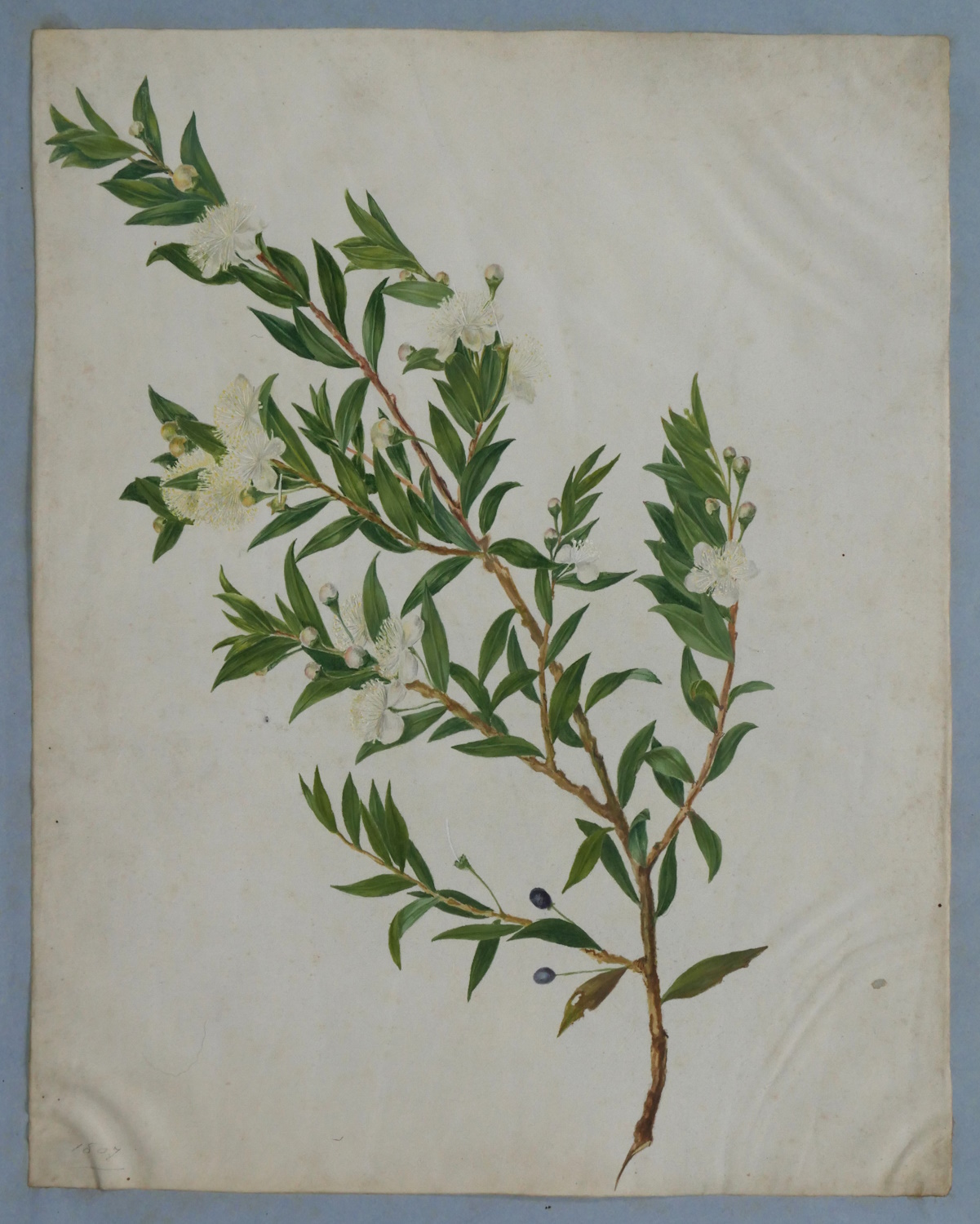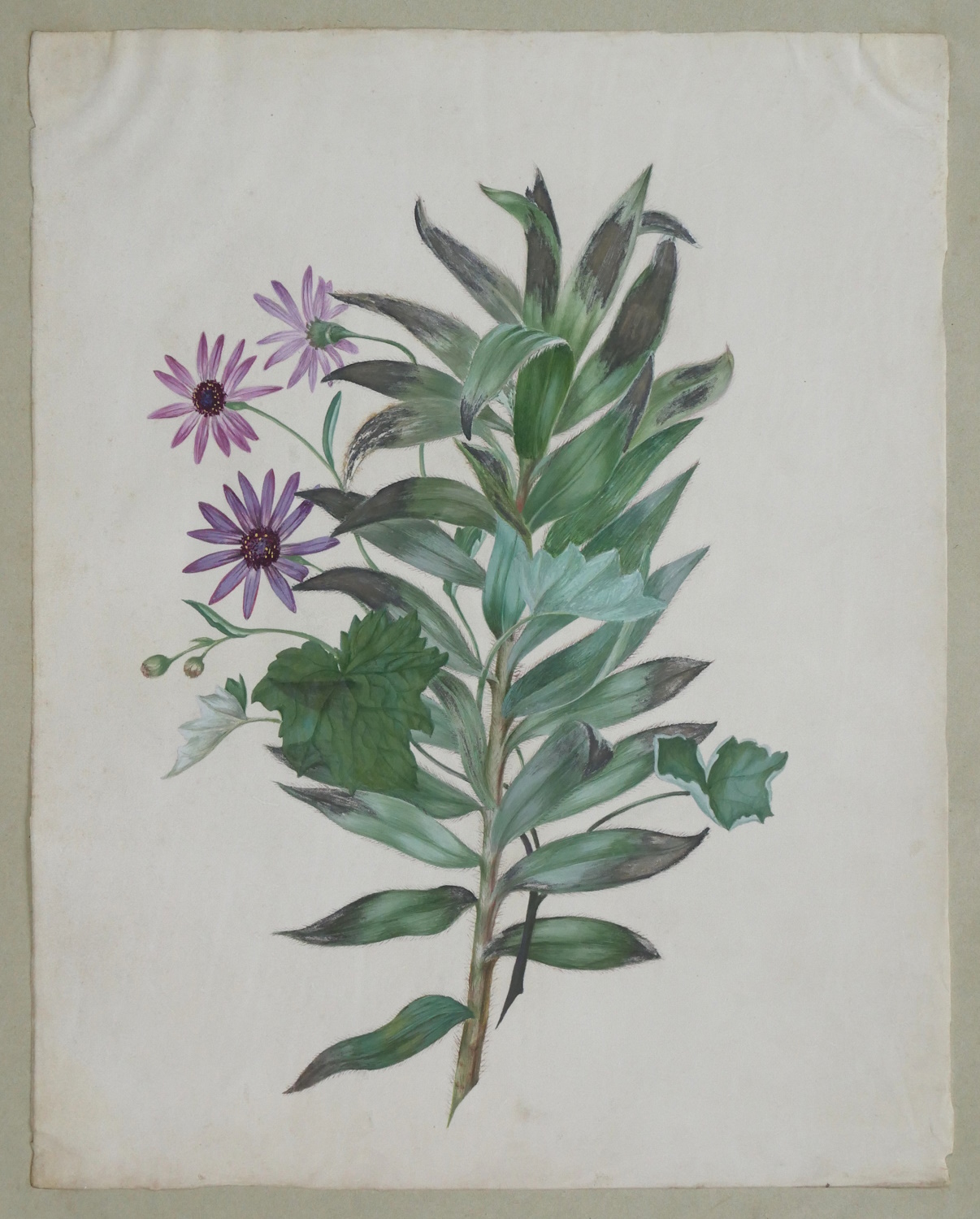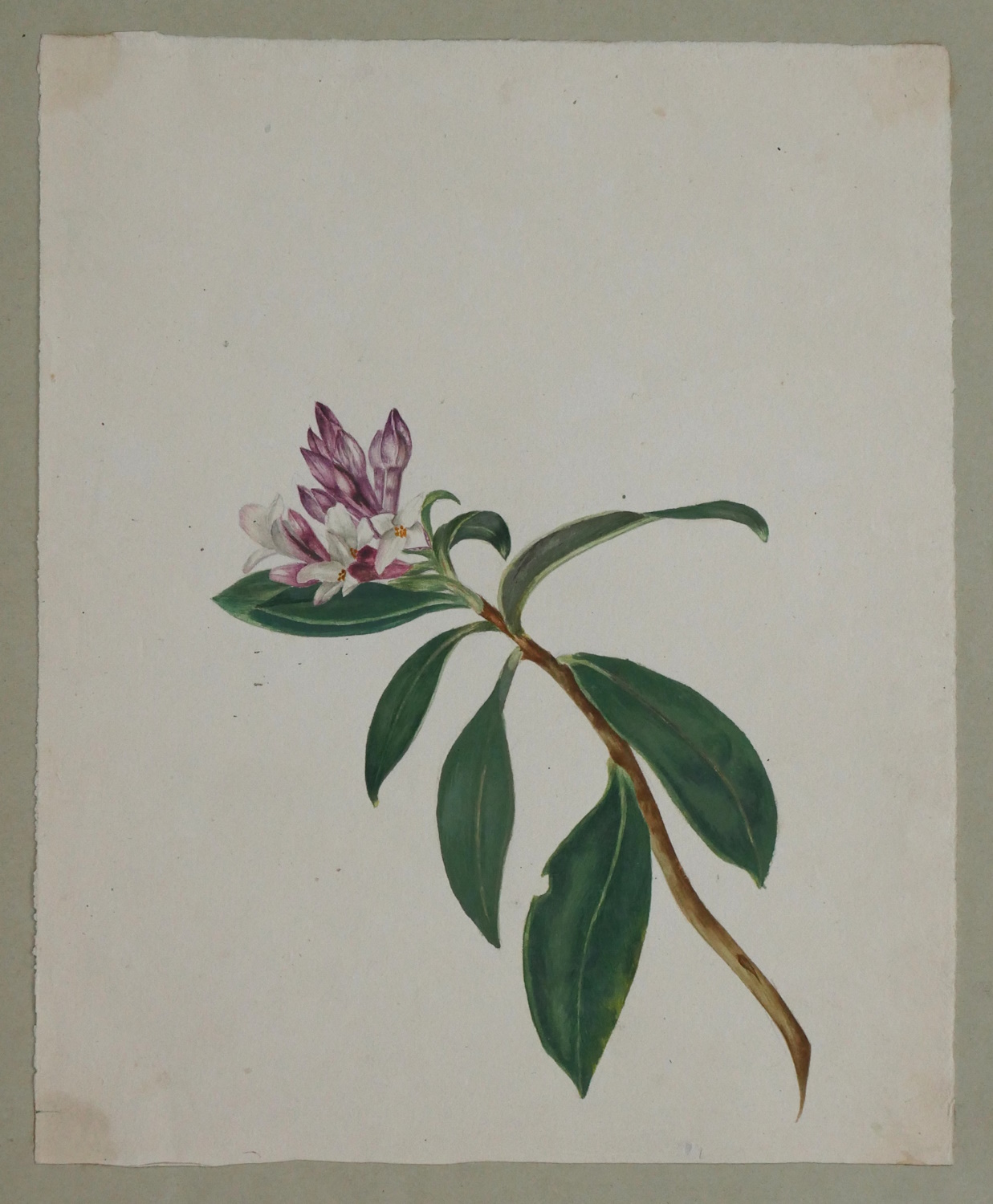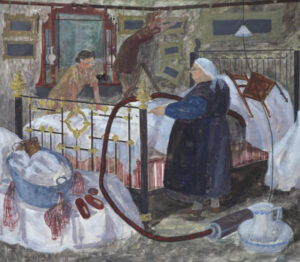Description
Henry Fox was a British Army officer and colonial administrator who served as the governor of Minorca (1799-1801) before taking the position of Lieutenant Governor in Gibraltar, (1801-1803). Subsequently the family moved to Ireland, then England before moving back to Gibraltar (17th Dec 1804-June 1806).
Marianne Clayton was the daughter of William Clayton, MP, of Harleyford Manor, and sister of William Clayton, 4th Baronet and Catherine, Lady Howard de Walden. They had 3 children.
• Louisa Amelia Fox (d. 1828), later wife of Major-General Sir Henry Bunbury
• Caroline Amelia Fox (d. 1868), who married Major-General William Napier
• Henry Stephen Fox (1791-1846), later the UK’s envoy-extraordinary and minister-plenipotentiary to the United States of America
In 1812 Caroline married her cousin; Sir William Francis Patrick Napier (1785-1860). He was a British general and historian who fought in the Napoleonic Wars, particularly in the Peninsular War in Spain and Portugal. William wrote the popular History of the War in the Peninsula…, 6 vol. (1828-40), based partly on his own combat experiences and partly on information supplied by two commanders in that conflict, the Duke of Wellington, and the French Marshal Nicolas-Jean de Dieu Soult.
All drawings have been removed from a scrap album: Chiefly comprising of early 19th century drawings and watercolours of botanical works by Caroline Amelia Fox (1795-1868) and the well-known naturalist Sir Charles James Fox Bunbury (1809-1886).
Title Page (written in pen and ink): Frances J (Joanna) Bunbury given me by my husband C J F (Charles James Fox) Bunbury – His Aunt’s drawings, (underlined in pencil under Aunt) – Lady (Caroline) Napier Wife of Sir William Napier. A copy of the title page will be included in the sale.
Other works from the collection are being sold separately, including five botanical studies by the well-known naturalist, Sir Charles James Fox Bunbury (1809-1886). There are also 6 drawings, views of Italy etc, including Belluno, and Turin, dating from May to August 1829.

